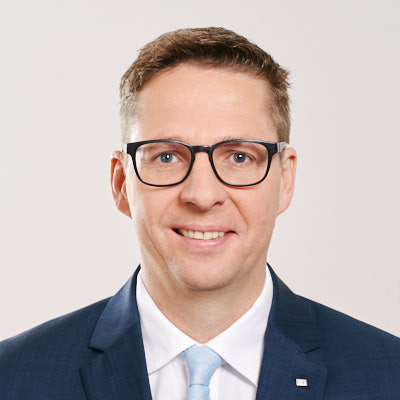1 Background
The Federal Fiscal Court decision ref. XI R 2/17 deals with the question as to when the reduced VAT rate applies to the transactions of non-profit organizations’ dedicated activities. The Federal Fiscal Court permits this application only in very limited circumstances.
2 Facts
The Plaintiff is a non-profit association, which pursues charitable purposes in terms of sec 53 of the German Fiscal Code. In order to fulfil its statutory purpose, it operates a workshop for disabled people. In addition, it operates a bistro and a public toilet, which do not constitute part of the workshop operation. However, in both the bistro and toilet facilities the Plaintiff employs disabled employees. The Plaintiff applied the reduced VAT rate to the revenue gained from the operation of the bistro and the toilet, while the tax office applied the standard VAT rate.
3 Federal Fiscal Court decision
The Court denied the existence of the conditions for the application of the reduced VAT rate in accordance with sec 12 para 2 No 8 lit. a of the German VAT Act. The basis for the decision is the interpretation of national law in compliance with Art. 98 in conjunction with Annex III No. 15 of the VAT Directive. The Member States may, in particular, "apply a reduced rate of VAT not to all supplies of services related to social wellbeing, but only to services provided by organisations which meet the dual requirement of being themselves devoted to social wellbeing and being engaged in welfare or social security work” (ECJ, judgement of 17.06.2010 - C-492/08). Supplies of services other than those devoted to social wellbeing would therefore be excluded from the scope of the VAT reduction under Union law. Sec 12 para 2 No. 8 lit. a sentence 1 would therefore not be compatible with Union law. Consequently, the provisions of sec 12 para 2 No. 8 lit. a sentences 2 and 3 would have to be interpreted broadly for them to result in the standard VAT rate being applied.
In the case at hand, the Federal Fiscal Court denied the existence of the conditions for a VAT reduction despite the existence of dedicated activities within the meaning of sec 68 No. 3 letter c of the German Fiscal Code. It justified this by stating that the association had primarily generated additional income through the execution of transactions which were not indispensable for the purpose of the articles of incorporation. In addition, the association was competing with other taxable persons due to the operation of the bistro and the public toilet.
In particular, it did not achieve its statutory purpose "with these" supplies of services either. The individual supplies of restaurant services rendered by the bistro and the provision of the toilet facilities primarily served the purposes of visitors and users who were not covered by the non-profit purpose of the establishment. They were not originally non-profit purpose supplies of services within the meaning of Art. 98 para 2 and 3 in conjunction with Annex III No. 15 of the VAT Directive. In addition, the neutrality of competition to be protected would take precedence over a possible social steering purpose due to the threat of distortions of competition.
4 Consequences for the practice
The decision is in line with the Federal Fiscal Court’s view that the reduced VAT rate for non-profit organizations should only be applied to a very limited extent. It is now for the non-profit organizations to examine whether the transactions rendered by their dedicated activities are (still) subject to the reduced VAT rate of 7%.
According to the Federal Fiscal Court, a reduction will only apply if the activity is not in direct competition with taxable persons subject to the standard taxation or if the tax-privileged purpose of the articles of incorporation is realised directly with the rendered supply of service. The requirement of an original non-profit supply of service, within the meaning of Art. 98 para 2 in conjunction with Annex III No. 15 of the VAT Directive, would only exist in the decided case if the supplies of services were rendered exclusively to disabled people. It was therefore found not sufficient that the disabled people participated in the supplies of services rendered. This statement is of the highest relevance for many integration companies. If the view of the Court ultimately prevails, these sorts of companies will, in the future, find it very difficult to achieve a VAT reduction on their transactions in comparable situations.
In our opinion, the Court has misjudged the functioning of workshops for disabled people and inclusion companies. With the preparation of meals and the serving of customers by disabled people the organization is actually realizing welfare purposes. Here, the focus is on the disabled people. The consumer does not visit these facilities primarily in order to consume a finished product, but rather to offer disabled people an opportunity to participate in social (working) life.
It is also questionable whether the Court has exceeded its margin of discretion. In our opinion, the question should have been referred to the ECJ. Art. 98 para 2 of the VAT Directive is applied in favour of inclusion companies since the organization is recognised as being devoted to social wellbeing. Its supplies serve the welfare purpose of inclusion and social security.
As long as the Court decision has not been reflected in the German VAT Circular and has not been published in the Federal Tax Gazette, it can be assumed that the authorities will continue to apply Sec. 12.9 (9) German VAT Circular.
Contact:

Prof. Dr. Thomas Küffner
Lawyer, Certified tax consultant,
Certified public accountant
Phone: +49 89 217501230
thomas.kueffner@kmlz.de
As per: 18.12.2019
